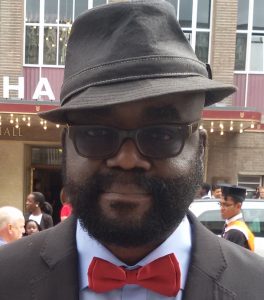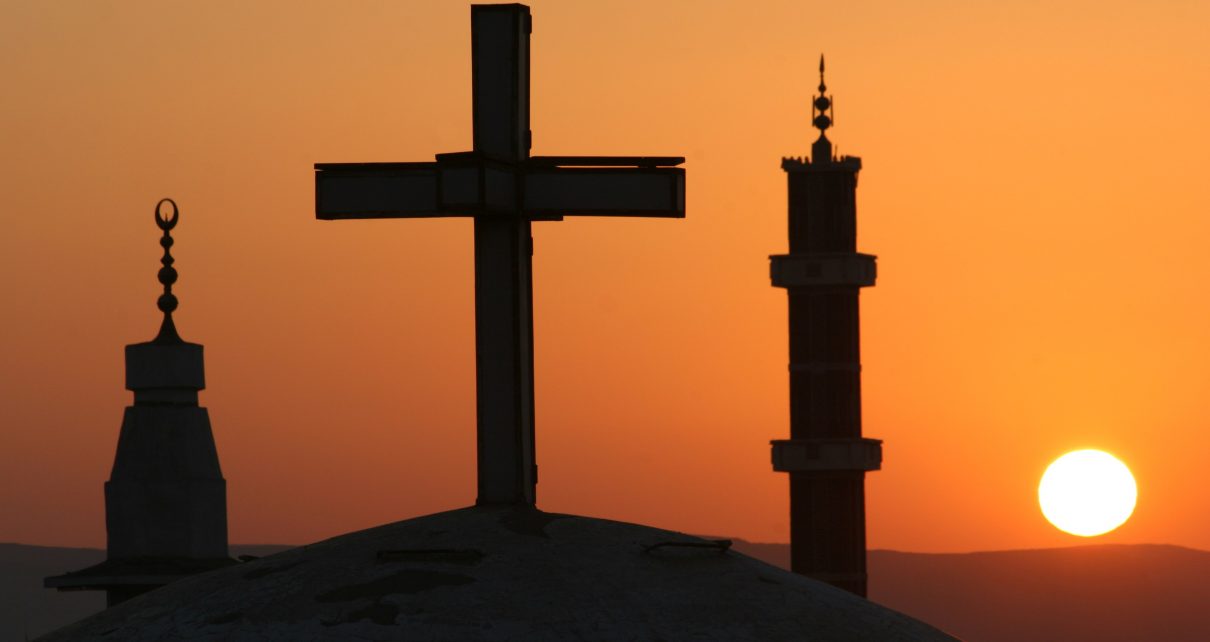
In the first part of this topic, we made the point that, “Religion is not the problem. The use to which religion is put is the issue.”
But it has not always been like that— especially when the issue is considered from the perspective of local influencers. What this means is that we have degenerated. Like everything else, the blight that defaced our country and made it unrecognisable from the prosperous forward-looking nation that secured independence from Britain in 1960— is still very much in play.
Religion used to be one of the catalysts of development before and during the First Republic. In many parts of Nigeria, the history of educational and infrastructural development will not be complete without a generous mention of missionaries of both the Christian and Islamic faiths. The Catholic Church established some of the best schools in the land. So did the Anglican Communion, Ansar Ud Deen, Zumratul Islamiya, Seventh Day Adventists, Ahmaddiya Movement, Cherubim and Seraphim, Baptist, Methodist, ECWA etc.
There was a healthy competition among the faiths in the provision of social amenities. It was easy, at the time, to believe Pervez Musharraf’s statement that, “Islam teaches tolerance, not hatred; universal brotherhood, not enmity; peace, and not violence.” Now, the brand of Islam and Christianity espoused by some of our people are totally at variance with what we used to know. Religion has now been weaponised in justification of many evil schemes.
As Reza Aslan notes, “Religion doesn’t make people bigots. People are bigots and they use religion to justify their ideology.” Can you now see where Boko Haram and their co-travellers are coming from?
Some of the best hospitals were owned by missionaries. Indeed, there are many areas of this country where the only source of accessing healthcare is the mission. Philanthropic movements through the ages were championed by the churches. Countless orphanages, skill acquisition centres, women’s rights movements, civil rights organisations and other establishments committed to the restoration of human dignity has their origin in the church or some other religious organisation. In that long gone era, religion held up the moral compass and spoke the truth to power.
Cardinal Jorge Mario Bergoglio, as he then was, frontally challenged the government of Argentina to change direction from the politics of elite greed and mass pauperisation. He was a combative archbishop unafraid to challenge entrenched authority personalised by the husband-and-wife tag team of Nestor and Cristina Kirchner. In 2010, when Argentina approved a marriage law giving same-sex couples the same rights as heterosexual ones, Bergoglio warned the government that the law amounted to an “intention to destroy God’s plan.”
Like Nigeria’s Bishop Matthew Hassan Kukah, Bergoglio had become a symbol of the use of the pulpit to speak truth to power. The world was not surprised when the Papal Conclave of 13th March, 2013, elected him Pope. Today, even as he presides over the affairs of 1.2 billion Catholics worldwide, he carries his own bag, travels by public transport, while mere pastors of churches with less than 10,000 members boast of owning three private jets!
It has been a long trajectory from the era of compassionate and forward-looking missions to this present day where God is being upstaged by the image of the greedy pastor whose focus is not theology but hypnotism through motivational and fund-raising talks disguised as sermons.
By their fruits, you shall know them. If you don’t know where the rain started beating you, how can you tell when you started getting wet? We embarked on the journey to bastardisation of religion when we ignored its building blocks:
- The loss of transparency and accountability.
- The absence of well-trained clergy and the enthronement of theological illiteracy.
- Ceasing to be a prophetic voice.
- Playing to the political gallery and losing sight of the spiritual missions of churches to humanity.
- Greed: the so-called Prosperity Doctrine is a glaring manifestation.
- Majoring on the minors and minoring on the majors. Focusing on what is unimportant and ignoring that which is crucial.
- Franchising of the church: Establishing churches primarily for the purposes of increased revenues rather than reaching souls with the gospel.
- A lack of understanding about what the gospel is all about.
- A focus on self-improvement rather than service to others. There is a difference between preaching the good news which is the Gospel; and good advice which is anchored on New Age philosophy, positive thinking and human wisdom, by slick fast-talking entrepreneurs masquerading as clergy.
- Intimidation, condemnation and scare tactics that condemn believers to bondage rather than setting them free.
What should be done to reverse the ugly situation?
Dr. Victor Oladokun, a Strategic Media and Communication Consultant, argues that we can start the process of restoration by building structures that ensure accountability in institutionalised and independent churches. The current system where the purse of the church is an extension of the pastor’s pocket is iniquitous. Umbrella bodies such as the Catholic Bishops Conference (CBCN), Pentecostal Fellowship of Nigeria (PFN), Christian Association of Nigeria (CAN), the Nigerian Supreme Council of Islamic Affairs (NSCIA) etc can help by drawing up and enforcing guidelines for the comportment and theological purity of the clergy in accordance to the tenets of each faith.
Even though this may sound unpopular and unleash all the dogs of war at the command of many a cleric, there must be some form of regulation and enforcement of codes of conduct by Nigeria’s equivalent of the Charities Commission, including financial accountability. A church worker should have no problem separating his personal account from the religious organisation’s finances. A situation where a pastor is buying his third private jet at the height of the Covid pandemic when many of his members were locked down in poverty is neither Christian-like nor morally defensible.
It was in this same country that the friendship/partnership between two great men of different faiths led to good things. The legendary Rev. Fr. DJ Slattery had a good friend in Imam YPO Shodeinde. That relationship paid off when Fr Slattery was scouting for land to establish St Finbarr’s College at Akoka. Who, but his Muslim friend, facilitated the acquisition and bush clearing? How one wishes such partnerships are commonplace today.
Part of the problem is that we glorify inanities. Society no longer celebrates churches, Islamic movements and religious leaders who make selfless contributions and tangible differences. Rather, we idolise glamour, drama and profanity. The pastor, Imam, or Sheik becomes the centre of veneration, not God. Instead of the biblical Abba Father, some religious adherents now uplift the Daddy Pastor, Mummy GO, Baba Alfa and Man of God.
What should a rational human being do when headed 180 degrees in the wrong direction? Answer: Make a U-Turn.
We have to returning to the basic tenets of our faith. In the UK you cannot solicit money in a religious broadcast. The job of the clergy is to teach and empower believers to fulfil their purposes in life and to be salt and light in the world.
In Rwanda, pastors are required to have a theology degree before they can start their own churches. The law also requires faith-based organisations to declare grants to the regulator, Rwanda Governance Board. Any financial support to a faith-based organisation must be channeled through the organisation’s account in a bank or a financial institution in Rwanda. Some Rwandans who spoke to foreign journalists after the law came into effect said the strict measures are necessary.
Clarisse Mukasine, a follower of a Pentecostal church, synthesises what is on the minds of many people of faith, some of whom have voted with their feet and decided to no longer align with any particular denomination.
“Some pastors live off their followers; others enrich themselves using grants meant to support church projects because there is no accountability,” she said.
So, there you are! Religion is not necessarily the problem, the manner it is being weaponised to pauperise and zombify the people is the issue.
Hopefully, our religious leaders can still make a U-turn before it is too late.
- Wole Olaoye is a public relations practitioner and a public affairs commentator and can be reached at wole.olaoye@gmail.com


